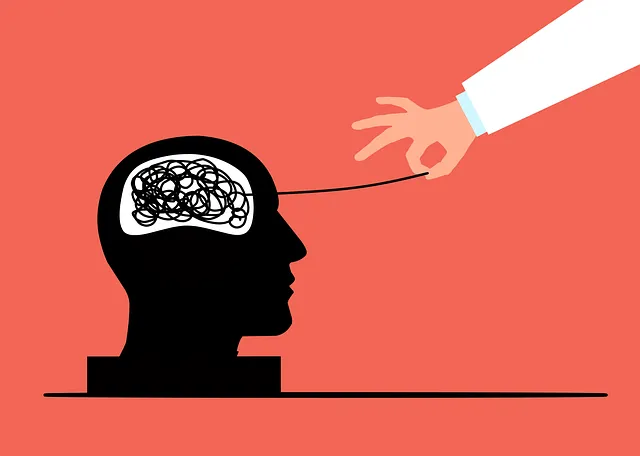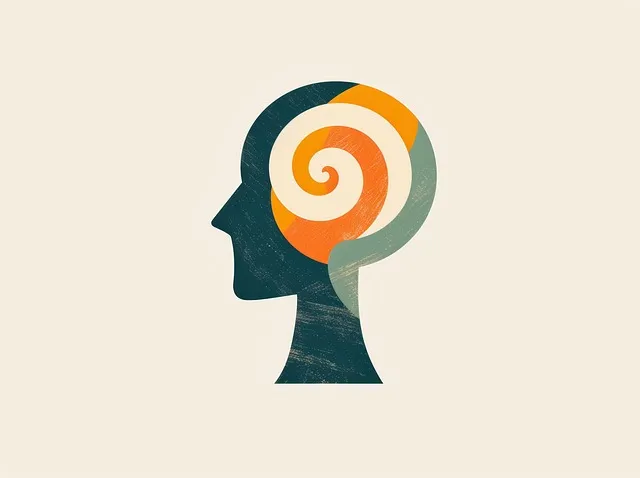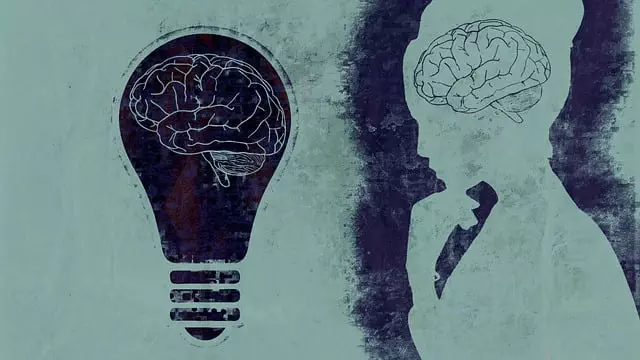Kaiser Permanente behavioral health services Centennial prioritize mood regulation as a vital aspect of emotional well-being. They employ personalized strategies, including Cognitive Behavioral Techniques (CBT), self-awareness exercises, and healthy coping mechanisms. Their holistic approach integrates individual therapy, group support, community engagement, lifestyle adjustments, and stigma reduction efforts to foster emotional balance. By focusing on these comprehensive methods, Kaiser Permanente enhances access to care, improves quality of life, and promotes long-term mental resilience among their clients.
Mood regulation is a vital aspect of overall wellbeing, enabling individuals to navigate life’s challenges with emotional resilience. This article explores effective strategies for managing moods, drawing insights from Kaiser Permanente Behavioral Health Services Centennial’s comprehensive approach. We delve into cognitive-behavioral techniques, lifestyle adjustments, and complementary practices, offering practical tools for achieving emotional balance. By understanding the nuances of mood regulation, readers can harness their inner strength and foster a healthier, more balanced life, much like Centennial’s holistic program aims to empower individuals.
- Understanding Mood Regulation: Unraveling Emotional Balance
- Kaiser Permanente Behavioral Health Services Centennial: A Comprehensive Approach
- Cognitive-Behavioral Techniques for Effective Mood Management
- Lifestyle Adjustments and Complementary Practices for Wellbeing
Understanding Mood Regulation: Unraveling Emotional Balance

Understanding Mood Regulation: Unraveling Emotional Balance
Mood regulation is a crucial aspect of maintaining emotional well-being. It involves managing and stabilizing one’s emotional state to promote a sense of balance and overall mental health. Kaiser Permanente behavioral health services Centennial emphasizes the importance of recognizing individual triggers and developing personalized strategies for effective mood management. By understanding the complex interplay between thoughts, feelings, and behaviors, individuals can gain insights into their emotional responses and make informed decisions to enhance their mental resilience.
The process begins with self-awareness and recognition of patterns that contribute to emotional fluctuations. This includes identifying stress triggers, adopting healthy coping mechanisms, and cultivating a consistent self-care routine (Kaiser Permanente behavioral health services Centennial). Additionally, Mental Illness Stigma Reduction Efforts play a significant role in encouraging open conversations about mood disorders, fostering understanding, and promoting early intervention. Through tailored interventions, mental health professionals can assist individuals in navigating their emotional landscape, ultimately improving their quality of life and overall well-being.
Kaiser Permanente Behavioral Health Services Centennial: A Comprehensive Approach

Kaiser Permanente Behavioral Health Services Centennial offers a comprehensive approach to mood regulation, focusing on holistic well-being. Their programs integrate various evidence-based strategies such as Social Skills Training and Stress Reduction Methods to empower individuals with effective mood management tools. By combining individual therapy, group support, and community engagement, this initiative ensures a multi-faceted treatment experience tailored to each person’s unique needs.
This centered approach acknowledges that mood disorders are complex and often interconnected with social and environmental factors. Therefore, Kaiser Permanente goes beyond traditional therapy by fostering a sense of belonging and connection through group activities and peer support networks. This community-oriented strategy not only enhances the effectiveness of treatment but also promotes long-term mental resilience and improved quality of life.
Cognitive-Behavioral Techniques for Effective Mood Management

Cognitive-Behavioral Techniques (CBT) are powerful tools offered by Kaiser Permanente behavioral health services Centennial for effective mood management. CBT focuses on identifying and changing negative thought patterns that contribute to low moods, anxiety, or depression. By challenging distorted thinking and replacing it with more realistic, positive thoughts, individuals can significantly improve their emotional well-being promotion techniques. This approach encourages self-care practices by teaching coping strategies and problem-solving skills, helping people navigate stress, difficult situations, and intense emotions more effectively.
For instance, a simple yet effective CBT technique involves tracking one’s thoughts, feelings, and behaviors in a mood journal. By monitoring triggers and patterns, individuals can gain insights into their emotional responses and learn to reframe negative thoughts. Additionally, practicing mindfulness meditation or engaging in physical activities like exercise can enhance confidence boosting by reducing stress and promoting positive neurochemical changes in the brain, ultimately contributing to more stable moods.
Lifestyle Adjustments and Complementary Practices for Wellbeing

At Kaiser Permanente behavioral health services Centennial, we understand that integrating lifestyle adjustments and complementary practices can significantly contribute to overall mental wellness. Incorporating regular exercise, a balanced diet, and sufficient sleep into your routine not only improves physical health but also plays a pivotal role in mood regulation. Physical activity releases endorphins, often referred to as “feel-good” hormones, which can boost your mood and reduce stress, anxiety, and depression.
Complementary practices such as Mindfulness Meditation and Emotional Healing Processes are essential components of our Mental Wellness Podcast Series Production. These techniques teach individuals to be present in the moment, cultivate awareness of their thoughts and emotions, and develop a deeper understanding of themselves. By integrating mindfulness into daily life, individuals can enhance their ability to manage stress, improve focus, and promote emotional balance, thereby fostering a more resilient and fulfilling life.
Mood regulation is a multifaceted process that involves understanding emotional balance, employing comprehensive strategies like those offered by Kaiser Permanente Behavioral Health Services Centennial, and adopting evidence-based techniques such as cognitive-behavioral therapy. Additionally, lifestyle adjustments and complementary practices play a significant role in enhancing overall wellbeing. By integrating these diverse approaches, individuals can effectively manage their moods and cultivate a more balanced and fulfilling life.






